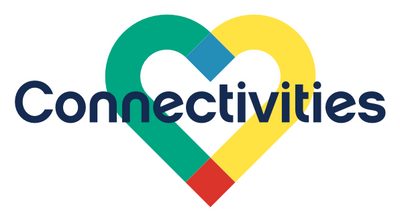+Recent Articles
- Nurturing Minds: The Power of Critical Thinking and Problem-Solving for Individuals with Learning, Cognitive, and Social Differences
- How fun and creativity can boost your mental well-being.
- Nurturing Social Skills: The Power of Hands-On Activities
- How Can Connectivities Help My Child or Loved One?
- How to Connect With Loved Ones Living with Dementia
- How to be the best dementia or Alzheimer's caregiver you can be
- Featured: Resources for Caregivers of Older Adults with Dementia written by Elder Law Answers
- Knowing When it Might be Time to Move
- Engagement with Connectivities
- Featured: How to Provide Balance and More Fulfilling Activities for People Living with Dementia
Tips for a Successful Visit with Someone Living with Dementia
Here are ten different tips to utilize when visiting your loved one living with dementia.
- Be aware of where the person is in the disease process. Teepa Snow has a
wonderful model called GEMS that can be accessed here GEMS Poster. - Keep your approach in mind. Don’t rush and come at them with a task. Ease them into it ensuring that they feel safe.
- In your greeting, tell them who you are and your relation. Such as “Hi Grandpa, it’s me, Mandy your granddaughter.” Rather than “Do you know who I am?”
- Be flexible. Even if you have a certain type of visit planned, you may need to shift your expectations if things aren’t going well.
- Use Familiar/Special objects:
a. Vision is the most important way people take in information. Bringing something special to look at, hold and discuss can be a good conversation starter and may spark a memory you didn’t expect!
b. Hearing is the second most important way we take in information. Music is a great way to connect. Old songs from the person’s youth or young adulthood are usually your best bet. Music can also help if you are trying to get your loved one to initiate a task. Distract them by singing an old favorite can be just what they need to get started.
c. Touch is a great way to connect with someone who is further along in the disease process. A hand massage, back rub, brushing hair can be very soothing.
d. If you bring food, make sure it is something easy to eat or drink like a milkshake, special coffee drink, smoothie, etc. - If you want to reminisce with your loved one, don’t ask “do you remember…..” Instead tell them about a favorite memory you have that involves them or what some of your favorite traditions were with them.
- Never argue. You won’t win and you will both end up frustrated. A white lie is better than ruining your visit just to be right.
- Visits don’t have to be long to be successful. A 30 minute visit can make someone’s day. If a visit is too long, you both might get frustrated. They won’t necessarily remember how long you were there, but how they felt while you were there will remain.
- People living with dementia have good days and bad days. If you have a
visit that doesn’t go well, that doesn’t mean the next visit won’t be a great
one. - Bring activities from a Connectivities box with you! The feeling of purpose
and connection that they get during the activity will stay with them long
after you are gone!
Leave a comment
Comments will be approved before showing up.




